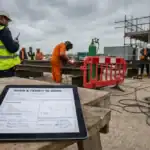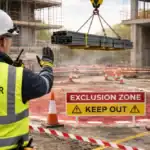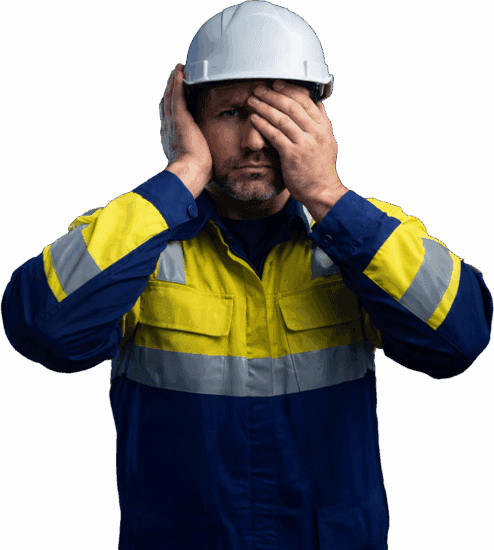
Too many children in the UK face abuse, and most won’t report it. Fear, confusion or coercion stops them from speaking out.
This makes it harder for people who work with children. They won’t always say when something’s wrong. You need to recognise the signs of child abuse, even when the victims stay silent.
In this blog, we look at the main reasons why children don’t disclose abuse, and what you can do if you suspect it.
Key Takeaways
- Child abuse includes physical, sexual or emotional harm, as well as neglect. Most children are abused at home by someone they know.
- The majority of victims don’t report abuse. They may be too scared, confused or embarrassed to speak up.
- If you suspect something, report it as soon as possible. You don’t need evidence – just a reasonable concern.
- Record what you’ve seen or heard. When speaking to a child you suspect is being abused, ask open questions and write down exactly what they say. Don’t voice your own opinions.
- Report suspected child abuse to the local police or the NSPCC on 0808 800 5000. You can report anonymously if you prefer.
What Is Child Abuse?
Child abuse happens when a child is hurt, neglected or treated in a way that harms them. Abuse can happen anywhere – in school, in public or even online – but it most often occurs at home.
What Does Child Abuse Look Like?
- Physical abuse means hurting a child on purpose. This includes hitting, slapping, shaking, burning or doing anything that causes pain or injury.
- Sexual abuse means doing sexual things to a child or making them take part in sexual acts. It can also include exposing them to graphic content.
- Psychological abuse involves actions that damage a child’s mental health. It can include isolating them, controlling their behaviour, making them feel afraid or blaming them for things they didn’t do.
- Emotional abuse means treating a child in a way that makes them feel worthless or unloved. Emotional abusers can make threats, ignore children or call them names.
- Neglect means not taking care of a child’s physical, emotional or developmental needs. Physical neglect includes denying children food, ignoring medical problems or refusing to wash them or their clothes. Emotional neglect includes denying love and positive attention.
Tragically, in most cases, the victim knows and depends on the abuser. This relationship is one reason many children are reluctant to speak up.
Safeguarding Courses
Understand safeguarding duties and best practices. Our online safeguarding courses run from Level 1 awareness to Level 3 DSL training. Learn how to identify abuse and meet your responsibilities to safeguard children or vulnerable adults.
How Does Abuse Affect Children?
Abuse affects how children feel, think and even how they physically develop.
Some children become quiet or withdrawn. Others may become aggressive or anxious. They may struggle to sleep, eat or focus. Many students fall behind in school or stop enjoying things they once liked.
Emotional and psychological abuse can make children feel worthless, scared or unloved. Over time, this can lead to low self-esteem, depression or serious mental health problems.
Abuse in early life can also affect brain development. It can make it harder for children to learn, make decisions or control emotions. These effects often last into adulthood.
The damage is not always easy to spot. But if something feels off, it’s important to take it seriously. Children need adults who will notice the signs and act. A small step can make a big difference.
How Common Is Child Abuse in the UK?
It’s impossible to know exactly how many children suffer abuse in the UK because it’s often unreported.
Some reliable data comes from the Crime Survey for England and Wales (CSEW), which asked adults to report abuse they experienced as a child.
According to the survey, one in five adults aged 18 to 74 experienced some form of abuse before the age of 16. That’s around 8.5 million people living with the long-term impact of abuse they experienced as children.
However, these figures only reflect historical cases that victims were prepared to report. Most children don’t tell anyone at the time abuse happens.
Why Children May Stay Quiet About Abuse
Most children won’t say they’re being abused. Understanding why helps you spot when something might be wrong.
Fear of Retaliation or Punishment
Children may be scared that their abuser will hurt them or someone they love if they speak up. Others worry they’ll get into trouble if they tell someone.
Shame, Guilt or Embarrassment
Some children feel ashamed to say abuse is happening because they believe it’s their fault (a falsehood often encouraged by abusers). Others feel too embarrassed to talk about what happened, especially if it involved sexual acts or humiliation.
Confusion or Lack of Understanding
Young children might not know that what’s happening is wrong. If the abuse started at an early age, it can seem normal to them. They may also not have the words to describe what’s happening.
Loyalty or Attachment to the Abuser
Often, the person hurting the child is someone they love or trust. It might be a parent, family member or teacher.
The child may still care about this person and feel confused or protective, even if they’re being harmed.
Fear of Not Being Believed
Children often fear that adults won’t believe them. This is more likely if the abuser is someone other adults trust. They may worry they’ll be called a liar or told they’re making it up.
Lack of a Trusted Adult to Confide In
Some children don’t have anyone they feel safe talking to. If there’s no adult they trust, they may keep it to themselves. Without support, the silence continues.
What You Can Do If You Suspect Child Abuse
Trust Your Instincts
If you think something might be wrong, don’t ignore it. You don’t need to be certain. Many children stay silent, so it’s often up to adults to notice the signs and take action.
Look for Patterns
One bad day or a single injury doesn’t always mean abuse. But repeated signs are a warning. If a child has consistently poor hygiene or repeat injuries in unusual places, this could indicate abuse.
Notice Unusual Injuries
It’s not unusual for children to be injured. Cuts and scrapes on the hands and knees are common in parks and playgrounds. But be alert for any injuries to the:
- Face (particularly around the eyes and cheeks)
- Neck
- Ears
- Back
- Chest
- Stomach
- Bottom
- Upper arms
- Upper thighs
What to Do If a Child Tells You They’re Being Abused
If you have reasonable concerns, you shouldn’t wait for the child to bring it up first.
Find a quiet, safe space and ask the child if something’s wrong or if there’s anything they want to talk about.
But don’t ask them directly. Some children may not respond well to pressure and will refuse to talk. Others will say they’re being abused because they think it’s what you want to hear, even if it’s not the truth.
Instead, you should do the following:
Listen Without Judgment
If a child opens up to you, stay calm. Let them speak in their own time. Don’t interrupt, press for details or ask leading questions.
And never promise confidentiality. Instead, explain gently that you will need to share what they’ve told you to get help.
Record the Facts
Write down exactly what was said, using the child’s own words where possible. Be clear and factual. Don’t add your own opinions or theories.
Take Action
Don’t wait. If something feels off, it’s better to report it than to stay silent. The right people can step in and make sure the child is safe.
How Do You Report Child Abuse?
If you suspect abuse, report your concerns as soon as possible. You don’t need proof. You just need to share what you’ve seen, heard or noticed.
You can contact your local authority’s safeguarding team. Every area has one. They deal with reports of abuse and decide what action to take. You can also contact the NSPCC on 0808 800 5000 or the police if a child is in immediate danger.
You will be asked for details such as what you’ve seen or heard, who the child is and why you’re worried. Try to be clear and factual. Give dates and examples where possible. You don’t need to investigate or confront the person you suspect.
Once you’ve made the report, it’s the job of the authorities to look into it. They’ll assess the risk and decide what happens next.
Can You Report Anonymously?
Yes. In most cases, you can report without giving your name. This is especially true if you contact the NSPCC. Even if you give your name, it can be kept confidential.
You won’t get into trouble for reporting a concern in good faith. It’s always better to speak up than stay silent. If you’re wrong, no harm is done. But if you’re right, your action could help protect a child.
What to Do If You Work With Children
If you work with children, your organisation will have a designated safeguarding lead (DSL). Report to your DSL as soon as possible.
It’s best to do this through the proper channels, but you can approach them informally if necessary. Your DSL may have knowledge you lack, and will decide whether concerns are reasonable or not.
The Role of Appropriate Training
If you work with children, you have a legal duty to safeguard them.
Safeguarding training is essential to meet that duty. We offer a range of online safeguarding courses designed to support your role and level of responsibility. The courses will help you understand:
- Types and signs of abuse
- Legal duties and guidance under UK law
- How to respond to a disclosure
- How to support a child while following the correct reporting steps
- The role of safeguarding leads
Enrol in our safeguarding training today and learn how to recognise, respond to and report abuse the right way.





















